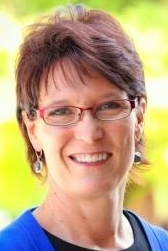This morning I begin teaching a class in Campaigns and Elections at Arizona Christian University. As I’ve prepared for the semester, I’ve been struggling with the question: What do I tell the next generation voting for the first time?
When I was their age, I was thrilled to cast my first presidential vote for Ronald Reagan. His election in 1980 represented the triumph of conservative ideas in American politics—and my generation fueled much of the Reagan Revolution to follow.
Even though Reagan left office in 1988—almost 30 years ago—many still claim the mantle of “Reagan conservatism.” Many of the ideas of the Reagan Revolution are still in currency. His election represented a fundamental conservative realignment of American politics that stretched well beyond his presidency. A Gallup poll earlier this year showed that 37% of Americans defined themselves as conservatives, compared to only 24% as liberal. This ideological edge for conservatism has held steady for almost a quarter of a century, when 40% of Americans identified as conservative, while only 17% identified as liberals in 1992 when Gallup first measured political ideological self-identification.
I was excited to vote for the first time. But college students approaching their first vote are not exactly “thrilled.” Quite the opposite. Young voters (18-35) express frustration and cynicism about the current presidential race. They are “disgusted” with their choice in November and are increasingly likely to sit out the November election.
Last spring as the primary season unfolded, I interacted with my students about the state of American politics. College students are looking for serious political leadership, for statesmanship, for honesty, trustworthiness and integrity. Aren’t we all? As students of political science, they are politically aware, engaged, and deeply concerned about the nation they will inherit and someday eventually lead.
For the next 83 days until the November election, I will challenge them to think of American politics from the perspective of both their short-term reality and long-term opportunities for change:
• Navigating the short-term reality: Hillary Clinton and Donald Trump each are deeply flawed candidates. We can wish all we like that the choices were different, but they aren’t. As we talk through strategies for voting this election, I hope to remind students that unlike popular culture, politics is less about celebrity and people than about ideas. Which ideas—embodied in the party platforms—are most consistent with their values, especially from a biblical worldview perspective? And, don’t get lost in national politics. Remember that the level of government closest to the people—school boards, city government and other state and local officials—may not be as famous as the presidential candidates, but they have tremendous influence on our everyday lives. Finally, when you get discouraged, remember that ours is an incredibly resilient political system. Our political institutions and system of government will endure long beyond 2016.
• Playing the long game. I’m also going to encourage my students to identify and engage in long-term opportunities to transform American political culture with God’s truth. As people of faith, we are called to pray for those in government and in authority (I Tim. 2:1-4). But that’s just the start. In a free society we have both the opportunity and the obligation to engage in politics at all levels—from the grassroots up. I contend that one of the reasons the state of American politics is so dismal is because Christians have opted out of the political system. Remove salt and light from politics, and all that remains is incivility, corruption, dishonesty and grasping for raw power. Instead, people of faith, especially the next generation, need to re-engage in American politics. Learn the process, understand the institutions, and find a place to engage and make a difference. If you don’t like current state of American politics, work to change it. We are the People.
Bernie Sanders repeatedly shares this very fundamental political wisdom with his supporters. He reminded a gathering before the Democratic National Convention in Philadelphia, “Real politics is not necessarily sexy.” Instead, real politics takes hard work by dedicated people engaging at every level. Sanders plans to support at least 100 candidates running for a wide range of public offices — from local school boards to Congress — at least through the 2016 elections.
When the next generation complains about what seems a fairly bleak political future, I suggest they get engaged rather than abandon the field, especially to Sanders’ acolytes and socialism. Good advice for my generation, too.


Tracy, so well said. Thank you for speaking so candidly to your students about the upcoming election. I feel deeply we have an obligation to speak power into people who are thinking of not voting in this election. There is so much more at stake than just the presidency, as important as that is. You have given me some great talking points and words to use as positive encouragement to get them to vote.
Praying it’s a great semester for you and for all at ACU.
Shelley